Top 10 Most Populated Cities in Africa 2019
Description
Hello Displorers, Welcome back to another exciting video presented by Displore, In this video, We shall be presenting the top 10 most populated cities in Africa. Africa is a large continent woth over 1.2 billion people scattered amongst its 54 sovereign countries. Due to the fact that some countries are bigger than others in terms of surface area, they are more likely to have for population than others and that applies to its cities. Africa's urban population has been rapidly increasing in recent years. The increase is creating opportunities and challenges alike as these cities struggle to adapt as more residents compete for urban resources that are stretched to the limit. However, the rise in population is also creating new opportunities on fiscal, technological, and social fronts.
If you are new here, welcome be sure to subscribe and turn on notification so you don’t miss any of our videos
There are thousands of cities in Africa but these are the Top Most Populated ones.
10.Nairobi, Kenya, Population – 4.51 Million People
Nairobi is Kenya’s capital and largest city. It has an estimated population of about 4.51 million residents of which 60% live in poverty. It is a hub of commerce, technology, industry, and finance in East and Central Africa. Nairobi contributes 60% to Kenya’s GDP. Major airlines and charter plane companies operate from Jomo Kenyatta International Airport, thereby opening East Africa to the rest of the world. Crime levels in Nairobi are classified as critical by OSAC with robberies, burglaries, carjacks, and street crimes being prevalent. Crime levels are high in slums like Kibera and Mathare where incomes are low. The slums are classified as the biggest in Africa.
9. Abidjan, Ivory Coast, Population – 5.1 Million people
The 818 square mile Abidjan City is the economic capital of Ivory Coast. It has an estimated population of about 5.1 million people as of 2018. A study by the University of Ontario – Institute of Technology (UOIT) reports that the population of Abidjan grows by 2.83% annually. The city has a population density of 8578 per square kilometer. Abidjan is Ivory Coast’s hub of industrialization and urbanization. The city accounts for 18% of national employment, 52% of secondary and tertiary urban employment, and 50% of the country’s GDP. Cocoa, oil and natural gas sectors are other major economic contributors. Abidjan has a refinery that processes crude oil. The petroleum extracted is then exported or used to process oil products locally.
8. Cape Town, South Africa, Population – 4.52 Million people
Cape Town is a legislative capital of South Africa. Colloquially named the Mother City, it is the primate city of the Western Cape province. It forms part of the City of Cape Town metropolitan municipality.
The Parliament of South Africa sits in Cape Town. The other two capitals are located in Pretoria (the executive capital where the Presidency is based) and Bloemfontein (the judicial capital where the Supreme Court of Appeal is located). The city is known for its harbour, for its natural setting in the Cape Floristic Region, and for landmarks such as Table Mountain and Cape Point. Cape Town is home to 64% of the Western Cape's population and currently has extimated population of about 5.2 million people. It is one of the most multicultural cities in the world, reflecting its role as a major destination for immigrants and expatriates to South Africa
8. Allexandria, Egypt, Population – 5.2 Million people
Alexandria is a 115.8 square mile historical Mediterranean port and beach city in Egypt. It was founded in 331 BC by Alexander the Great. It is the second-largest city in the country with a population of about 5.2 million people. Alexandria’s population grows by 1.7% annually. The city contributes US$46 billion to the Egyptian economy every year. Its economy is anchored largely by tourism. It is thereby referred to as the Pearl of the Mediterranean. Nearly half of Egypt’s industrial activity happens in and around Alexandria, making it a major water consumer. Agriculture, growing population, and rapid urbanization are some of the factors increasing the water needs in Alexandria.

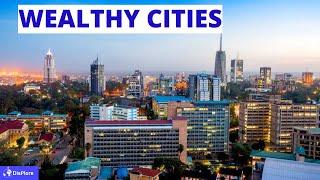
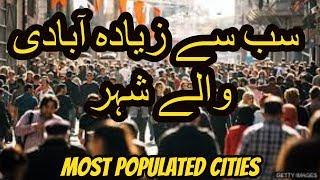
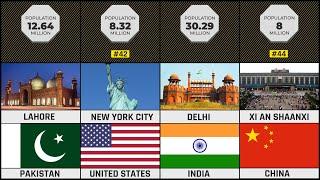
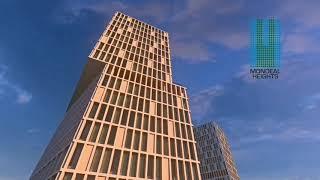

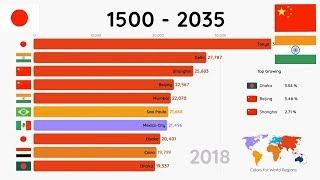
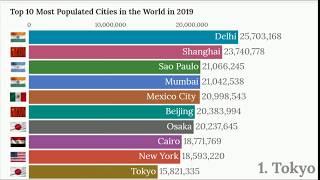
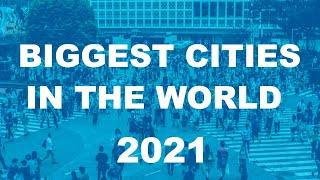
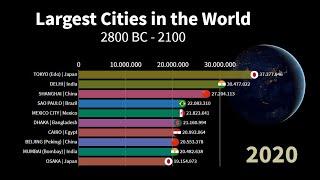
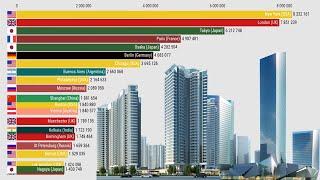
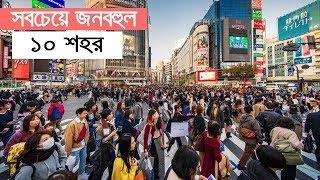
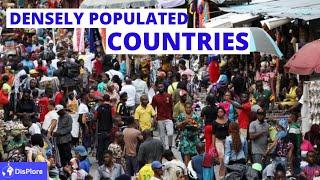

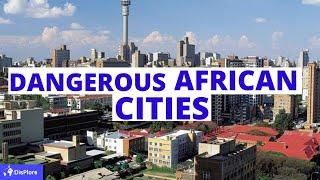
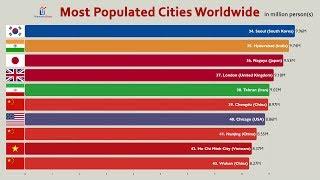





Comments